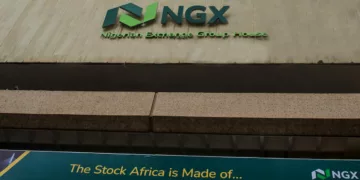The Centre For The Promotion Of Private Enterprise(CPPE) has estimated that the federal government would be able to unlock N6 trillion revenue yearly if it jettisons the present petrol subsidy regime.
The chief executive officer(CEO), of the Centre, said, Nigerian economy is heavily burdened and encumbered by two major subsidy regimes, which include the fuel subsidy regime and the foreign exchange subsidy regime.
Applauding President Muhammadu Buhari, for withholding assent to the 2023 Finance Bill, Yusuf, said the huge sums of revenue can be unlocked from these subsidy regimes, if appropriate reforms are implemented.
“Already, there is a plan to discontinue petroleum subsidy, which is a positive development. This action would unlock a minimum of N6 trillion revenue into the federation account annually.
“Additionally, there would be an end to the several years of plundering of the nation’s resources through the subsidy regime. The next administration would need to demonstrate the political will to put an end to this predatory practice.” he said.
Meanwhile, the CPPE strongly appealed to the labour unions and the civil societies to give the oil and gas sector reforms a chance to prevent the Nigerian economy from tumbling into deeper crisis.
Speaking on the second major subsidy regime from which huge revenues can be unlocked in the short term is the foreign exchange policy regime. Yusuf stated that, over the years ,the exchange rate assumptions in the appropriation acts were grossly and deliberately understated, leading to loss of trillions of Naira to the federation account.
According to him, “in 2021, for instance, the Central Bank sold an estimated $18 billion US dollars as interventions in the foreign exchange market at a hugely subsidized average rate of N400 per dollar. Effective exchange rate in the economy at the time was N560/$. This meant an estimated subsidy of N160/$ which translated to a conservative estimated revenue loss of N2.9 trillion.
“Similarly in 2022, an estimated $18 billion was sold as intervention in the forex market at an average rate of N447/$.
The average effective exchange rate for the period was conservatively about N650. Again, this meant a subsidy of N203/$, and this translates to an estimated revenue loss of about N3.64 trillion.”
These, he said, are huge loses of revenue to foreign exchange subsidy which are as damaging to the economy as the fuel subsidy. But curiously, the National Assembly and the CBN had serially, grossly and inexplicably underestimated the exchange rate benchmark in the appropriation bills of the past few years .
In addition, he said: “currency brokers, middlemen and some operatives in the financial system are the major beneficiaries of the huge arbitrage opportunities, massive rent economy and the vast round-tripping enterprise that the forex subsidy regime has created.
“Unlocking revenues from the forex subsidy would be a significant major step towards realization of fiscal consolidation objective of government. This would also reduce the current tendencies to impose additional burden of taxation on businesses and moderate macroeconomic headwinds.”
He, however, explained that this is not a devaluation proposition but a strategy meant to correct distortions in the forex ecosystem, boost government revenues, curb corruption in forex transactions and enhance liquidity in the forex market.
It will also improve efficiency in forex allocation, promote transparency in the forex environment and raise investors’ confidence in the Nigerian economy, added Yusuf











